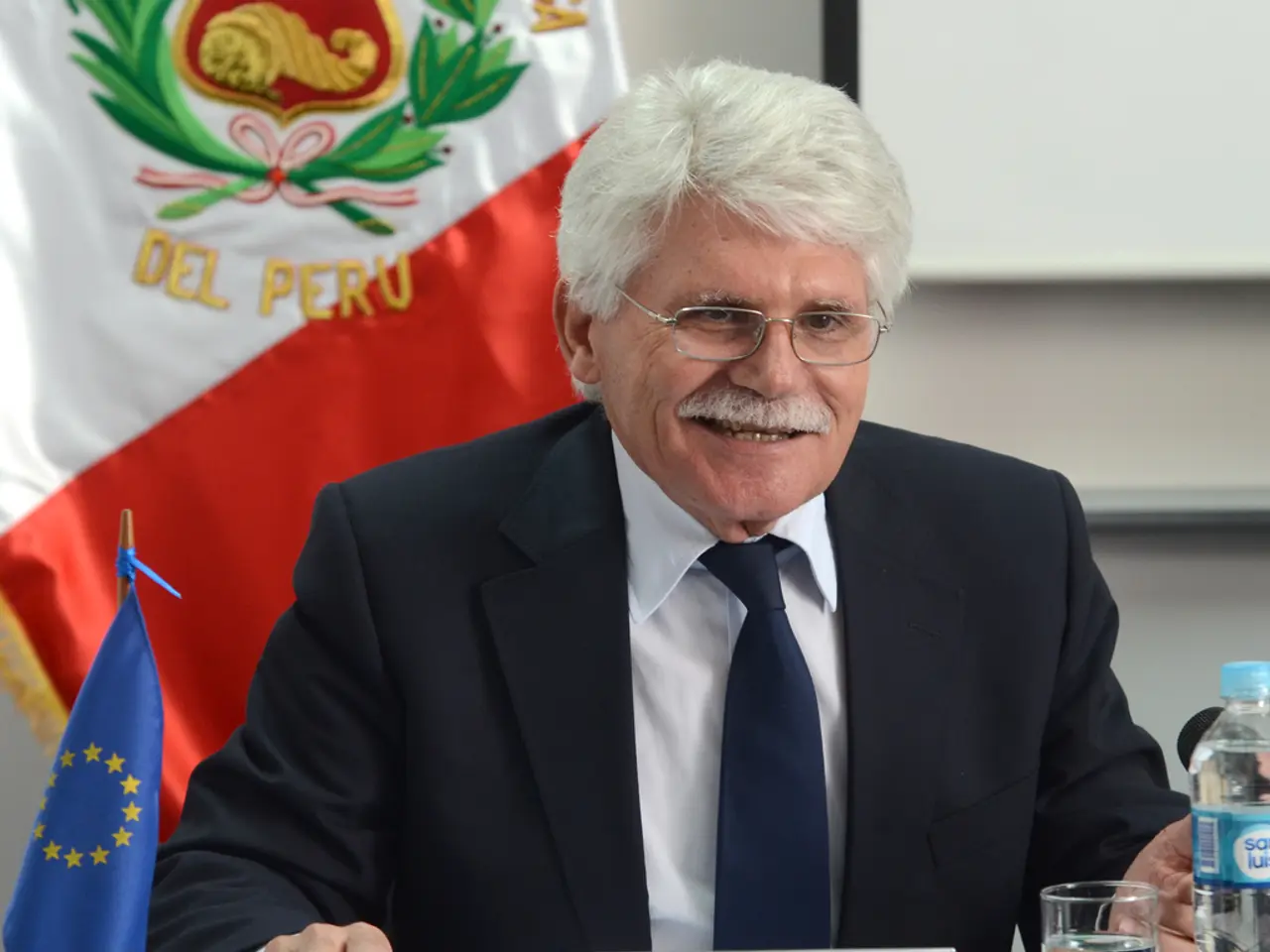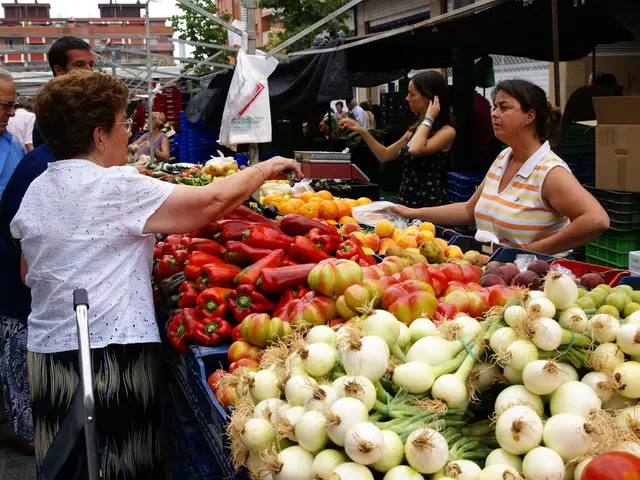Political contenders in Bolivia making final efforts to secure votes before election day
In the political landscape of Bolivia, the upcoming 2025 presidential election is shaping up to be a significant turning point, with the country grappling with an economic crisis and political fragmentation. The two leading contenders are Samuel Doria Medina and Jorge "Tuto" Quiroga, both representing alternatives to the ruling Movement for Socialism (MAS) that has faced declining popularity due to economic difficulties.
Samuel Doria Medina, a center-right candidate from the Unity Alliance, emphasizes pragmatic solutions to restore confidence and economic stability. His campaign focuses on market-friendly policies aimed at overcoming economic turbulence and inflation. Although specific policy details are limited, Doria Medina positions himself as a moderate reformer advocating for economic stabilization and growth.
Jorge "Tuto" Quiroga, a conservative former president running with the Liberty Alliance, campaigns on restoring economic stability through fiscal responsibility, strengthening democratic institutions, and resolving the ongoing economic turmoil. Quiroga, who served as Bolivia’s president from 2001 to 2002 and was a former finance minister, warns of the dangers of MAS's policies leading to Bolivia's fiscal and economic crunch. He presents himself as an experienced leader capable of managing the crisis and advocates for a return to traditional right-wing economic policies.
Neither candidate has secured over 25% of the vote outright, indicating a runoff is expected. The election reflects a significant political shift away from MAS dominance after two decades, with economic issues being central to voter concerns. Voters are faced with a choice between continuing MAS's anti-imperialist and interventionist economic policies or moving toward more centrist or conservative economic reform paths represented by Doria Medina and Quiroga respectively.
Bolivia is currently experiencing its worst crisis in a generation, marked by acute shortages of dollars, fuel, and subsidized bread. Doria Medina promises to restore dwindling supplies of dollars and fuel within 100 days through austerity measures. Meanwhile, Quiroga has pledged to roll back Morales-era nationalizations and close loss-making public companies. Inflation in Bolivia, as per Quiroga, rose to 24.8% year-on-year in July, its highest level since 2008.
The two main left-wing candidates, Rodriguez and del Castillo, are polling in the single digits. This election presents a stark contrast to the political landscape of 2005, where the race for Bolivia's presidency was led by left-wing candidates for the first time. The current race, however, is led by two right-wing candidates for the first time since then.
In conclusion, Bolivia’s 2025 election pits one center-right candidate, Samuel Doria Medina, offering moderate economic reforms and pragmatism, against the conservative Jorge “Tuto” Quiroga, who advocates for a decisive break from MAS economic populism through fiscal discipline and institutional strengthening. Both are responding to the country’s acute economic crisis but with different visions for Bolivia’s economic future.
In the context of the 2025 Bolivian presidential election, Samuel Doria Medina, a center-right candidate, proposes pragmatic solutions for economic stabilization and growth, focusing on market-friendly policies and general-news issues such as fiscal responsibility and austerity measures. On the other hand, conservative candidate Jorge "Tuto" Quiroga advocates for a return to traditional right-wing economic policies through fiscal discipline, strengthening democratic institutions, and rolling back Morales-era nationalizations – policies that address policy-and-legislation matters such as subsidies and loss-making public companies. The election represents a shift away from MAS dominance, with a significant majority of voters focused on resolving the economic crisis and general-news issues, leading to a stark contrast between the left-wing landscape of 2005 and the current race between right-wing contenders.





